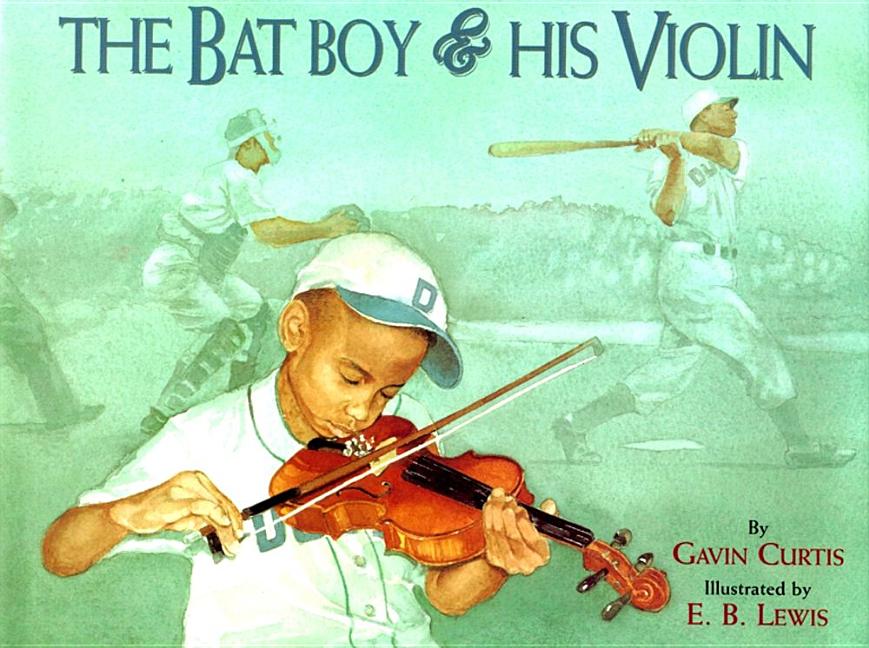Book Descriptions
for The Bat Boy and His Violin by Gavin Curtis and E.B. Lewis
From Cooperative Children's Book Center (CCBC)
Reginald is much more interested in playing his violin than he is in playing baseball but when his daddy needs a bat boy for the Dukes, the Negro League team he coaches, Reginald reluctantly agrees to go on the road, so long as he can take his violin along with him. Clumsy with the bats, he spends most of his time sitting in the dugout, playing his violin, much to his father's dismay. Surprisingly, the team starts a winning streak and they credit Reginald's music for their change of fortune. While the story is set in the past andincludes details about life in the Negro Leagues, the real story here is about the relationship between a father and son who clearly value different things in life, a theme that will resonate with many young readers. E. B. Lewis's realistic watercolor paintings aptly portray the historical setting as well as bright summer days on the baseball field. (Ages 5-9)
CCBC Choices 1998. © Cooperative Children's Book Center, Univ. of Wisconsin - Madison, 1998. Used with permission.
From the Publisher
A young aspiring violinist learns the value of family ties and team spirit in this picture book lushly illustrated by Caldecott Medal winner E.B. Lewis about a down-on-their-luck baseball team and the music that turns their season around.
Reginald loves to create beautiful music on his violin. But Papa, manager of the Dukes, the worst team in the Negro National League, needs a bat boy, not a “fiddler,” and traveling with the Dukes doesn’t leave Reginald much time for practicing.
Soon the Dukes’ dugout is filled with Beethoven, Mozart, and Bach—and the bleachers are filled with the sound of the Dukes’ bats. Has Reginald’s violin changed the Dukes’ luck—and can his music pull off a miracle victory against the powerful Monarchs?
Reginald loves to create beautiful music on his violin. But Papa, manager of the Dukes, the worst team in the Negro National League, needs a bat boy, not a “fiddler,” and traveling with the Dukes doesn’t leave Reginald much time for practicing.
Soon the Dukes’ dugout is filled with Beethoven, Mozart, and Bach—and the bleachers are filled with the sound of the Dukes’ bats. Has Reginald’s violin changed the Dukes’ luck—and can his music pull off a miracle victory against the powerful Monarchs?
Publisher description retrieved from Google Books.


